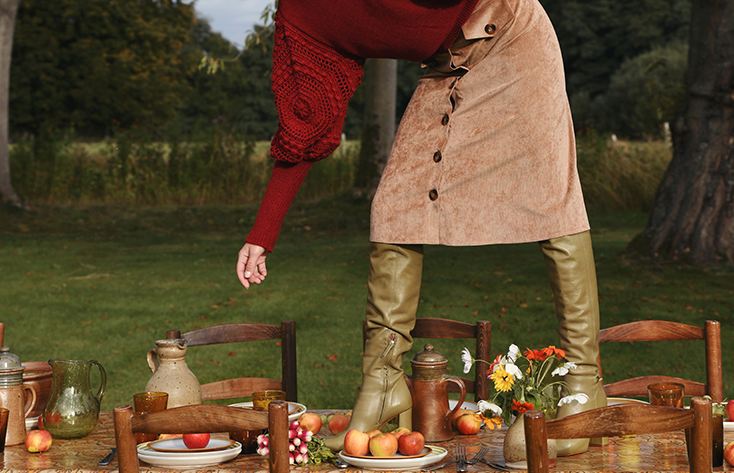
STELLA PARDO’s world
Our jumpers are knitted with love
When your hearts weeps and everything around you feel grey, there’s nothing better than wrapping yourself in a soft alpaca jumper. The embrace of wool on your skin is almost reminiscent of your mother’s warm hugs, whispering softly in your ear “everything will be okay”.
STELLA PARDO’s knits are made by talented knitters under the sun of Peru. These knitters are all mothers and most of them have to raise their children alone. Pushed by their fighting spirit and their natural optimism, they weave, crochet and knit to escape from the misery of slums and offer better prospects for their children.
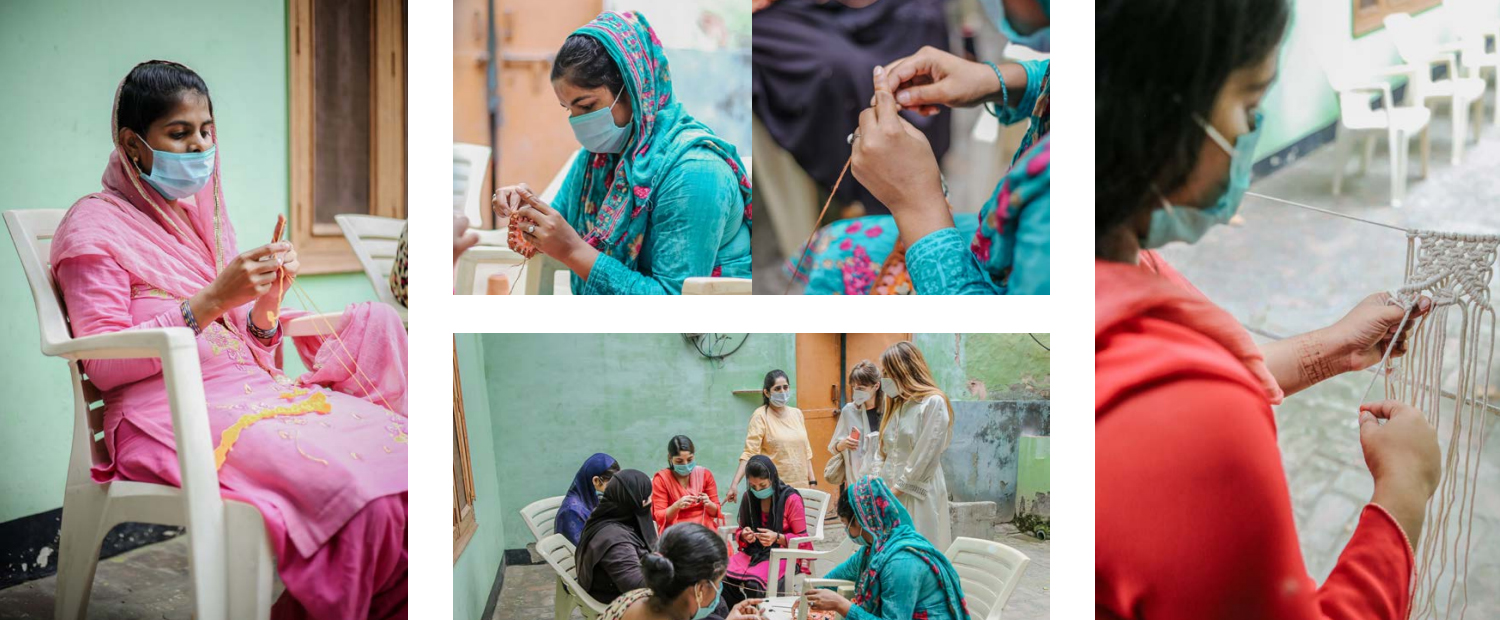
Stella Pardo, the grandmother of Cinthya Guerrero - founder of the brand - was one of those female warriors who tirelessly fought to provide for her ten children alone. When Cinthya launched STELLA PARDO in 2009 with her mother and her aunt, she wanted to pay tribute to her grandmother’s courage and to help Peruvian single mothers, by offering them to be entrepreneurs knitters so they can estimate themselves the prices of their knits.
STELLA PARDO is a human-centered brand which advocates hope alongside with a deep environmental commitment and a genuine promotion of ancestral know-how. And you can feel all of that in each of the pieces we create, as they exult life and tenderness through colors and generous volumes. It is crucial nowadays to adopt these values in order to fight against social and environmental crisis and build a better future.
After spending the last 13 years setting up its ethical and responsible production line in Peru, STELLA PARDO tackles a new challenge: to promote India’s craftsmanship and to create jobs for Indians in need. We work with Indian workshops run by families near New Delhi, which all use ancestral techniques such as tie and dye, embroidery and ikat weaving, made by marginalized people so they can have regular incomes.
STELLA PARDO in a few words
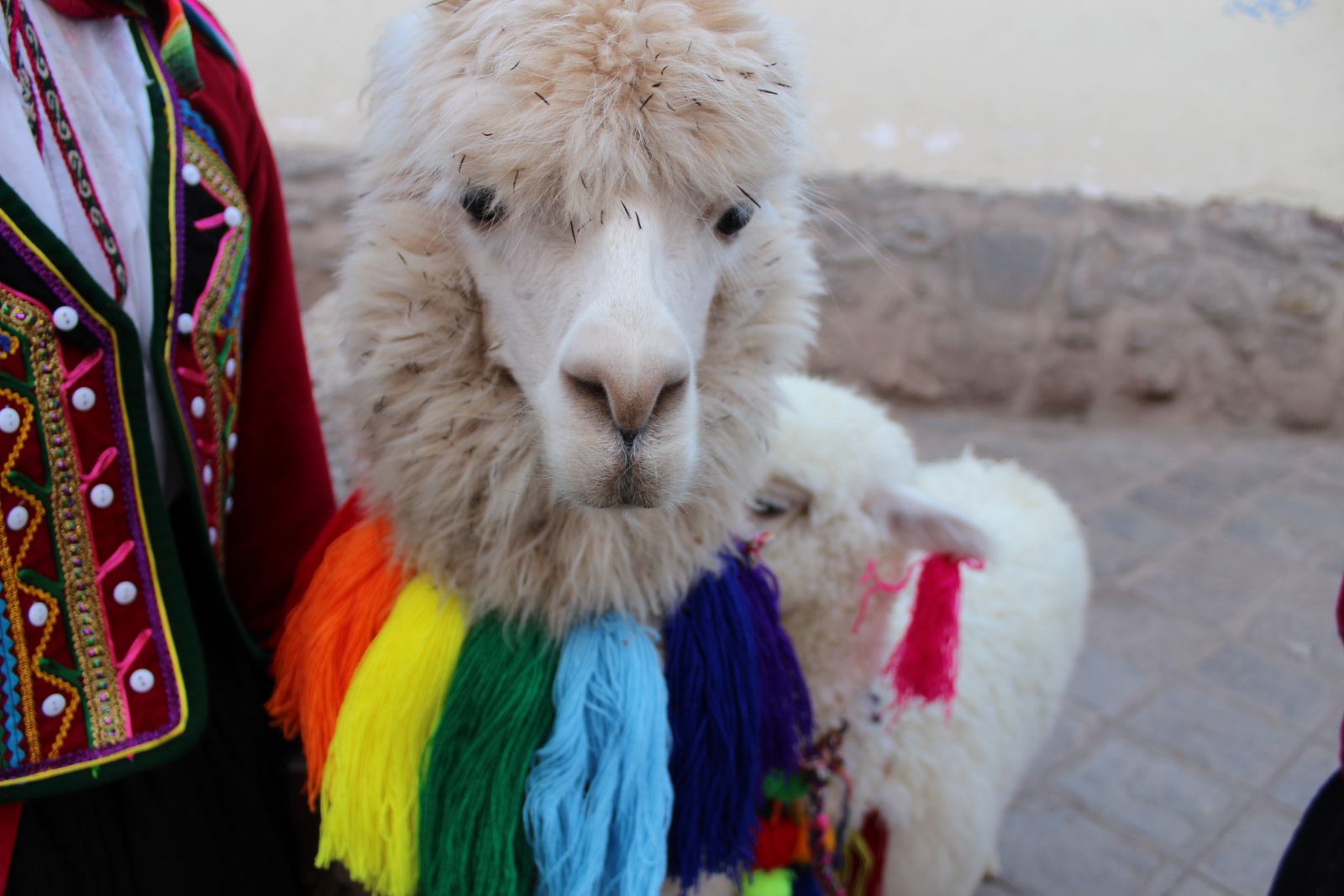
01 Alpaca
If there is one material that stands out in our collections, it is alpaca wool. We work with alpaca breeder families who shear their herds once a year, respecting ancestral rituals and offering some wool the Pachamama to thank the Earth for the harvest. Peruvian alpacas graze freely at an altitude of 3000 meters, which makes their fleece soft, warm and very resistant. Alpacas are the animals whose fleece has the widest range of natural tones: there are 22 of them, ranging from light grey to brown, fawn, beige, white and even black. The wool is then driven to Arequipa, where the fiber is sorted and spun by our ethical and responsible suppliers, all certified by various sustainable labels (GOTS, OEKO-TEX, Alpaca Origin Mark, USDA ORGANIC…).

02 Women empowerment
STELLA PARDO’s main mission is to help women being self-sustaining and therefore independent in their daily lives. Cinthya Guerrero comes from a family of single mothers, who raised their daughters alone from a generation to another. When she was a child, she saw her mother fighting to develop her uniform workshop and then to blend in France, accumulating several jobs, French lessons, and her daughter’s education. That is why it is natural for the designer to place women empowerment and wellbeing at the core of her brand. Our knitters can therefore decide themselves the price of the pieces they produce, work from home to keep an eye on their children and organize their timetable as they wish.
“Before I even had a precise idea of what my brand would be, I knew that my main purpose was to help single mothers and women living in slums. I wanted to give them hope, telling them “your motherhood is your strength. You can succeed in everything you want to do with a lot of will and work.” – The designer.

03 Handmade
Our pieces are all handmade by our skillful knitters in Peru. When our designer went back in Lima in 2009, she had an epiphany and realized that she wanted to put forward Peruvian talent for knit. Each and every of our knitters knit our alpaca wool with ancestral techniques passed from generation to generation for centuries. They can spend hours on one piece to make sure that it meets our quality and luxury requirements.
“When I launched STELLA PARDO, I wanted to create as many job opportunities as possible for marginalized people, who never accessed education but who developed wonderful talents that the world needs to discover. Crochet is one of the rare techniques that a machine cannot replicate, especially three-dimensional knitting stitches. We create highly technical pieces that cannot be imitated by the fast-fashion industry, and that are therefore unique for our customers.”
The designer.
04 Hope
We have always been committed to fair trade and to its values: respect for one’s work, incomes equality between men and women, rejection of child labor, fair remuneration… People from emerging countries have been exploited for too long in the production chains set up by developed countries, especially in the fashion industry. We want to give back hope and trust to our Peruvian and Indian artisans, and respect their independence.
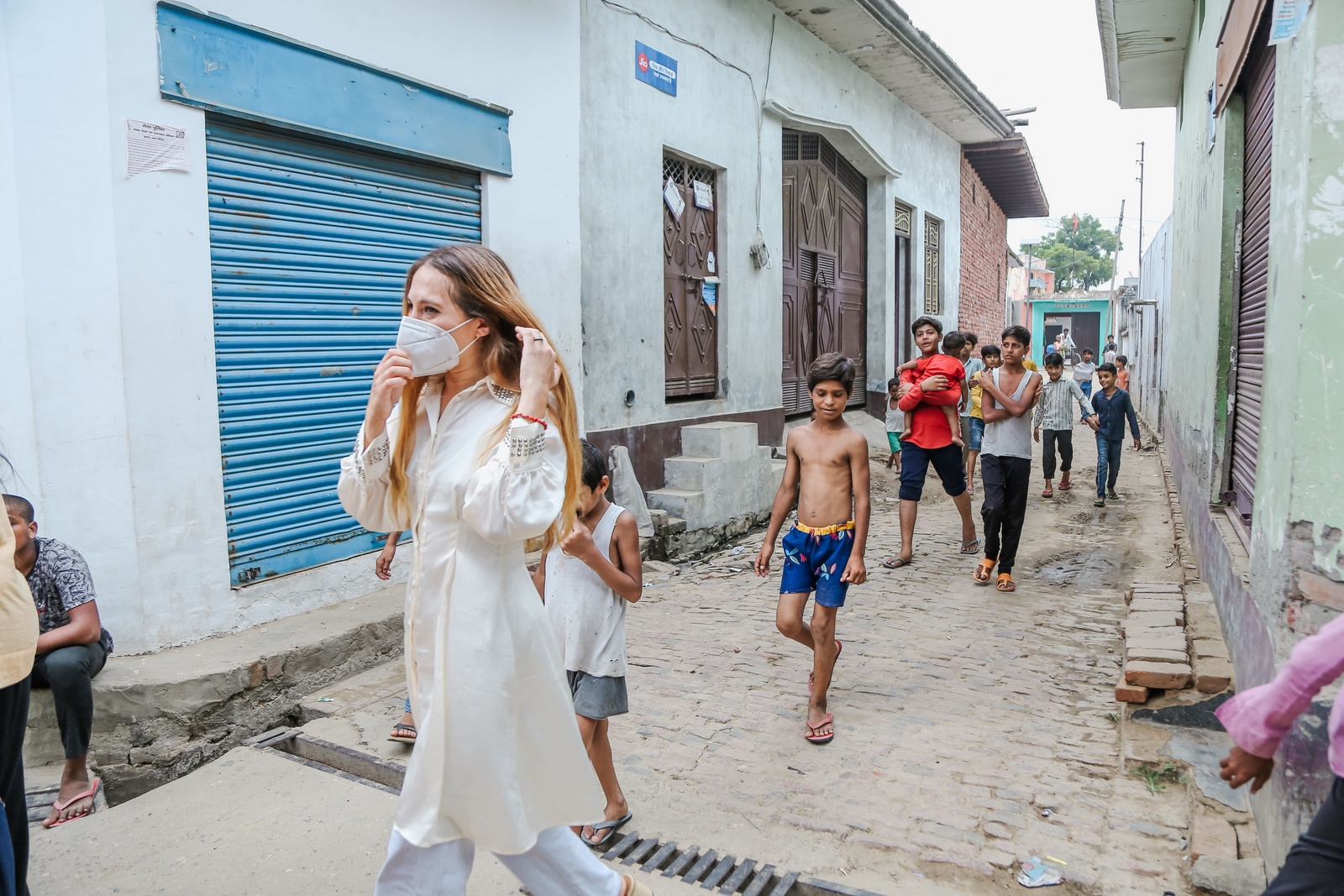
“I come from a country where there are very deep social inequalities, and where the government doesn’t help single mothers. It is crucial to push them to believe in themselves and to show them that they can think and act like entrepreneurs. I took time to teach them some knowledge about business and economy. I want to convince them that they have the ability to succeed.”
The designer.
05 Pachamama
The word that would perfectly sum up our Peruvian identity, our commitment to sustainability, our respect to traditions and our use of local materials such as pima coton and alpaca wool, is Pachamama. The designer is regularly inspired by Pachamama - her homeland – for her collections and her colors palette. Pachamama means “Mother Earth” in the Inca culture. It was one of the most important goddess in the Inca worship and she was often represented pregnant. It is still a key concept of the Peruvian culture nowadays.
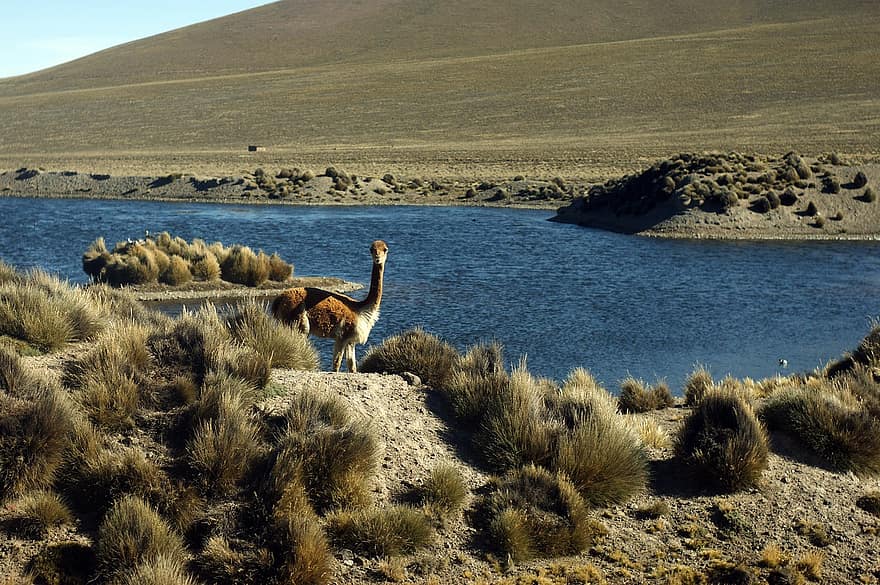
06 Paris
If our materials and our knitting techniques are Peruvian, our style is a 100% Parisian. Our sophisticated cuts, our beautiful trimmings, our finishing touches and our tiny details all meet French luxury’s requirements. Each of our pieces requires several hours, even several days of production, which ensures their flawless quality and their unique aspect. Indeed, we cannot produce our collections in industrial quantities as they are all handmade. Our Parisian DNA is also reflected in the rigor that we have had to demonstrate over the past thirteen years to set up an efficient and sustainable production system. STELLA PARDO is a pioneer of luxury products realized with a fair-trade production, and we had to be determined, organized and resistant against the ease of fast-fashion.
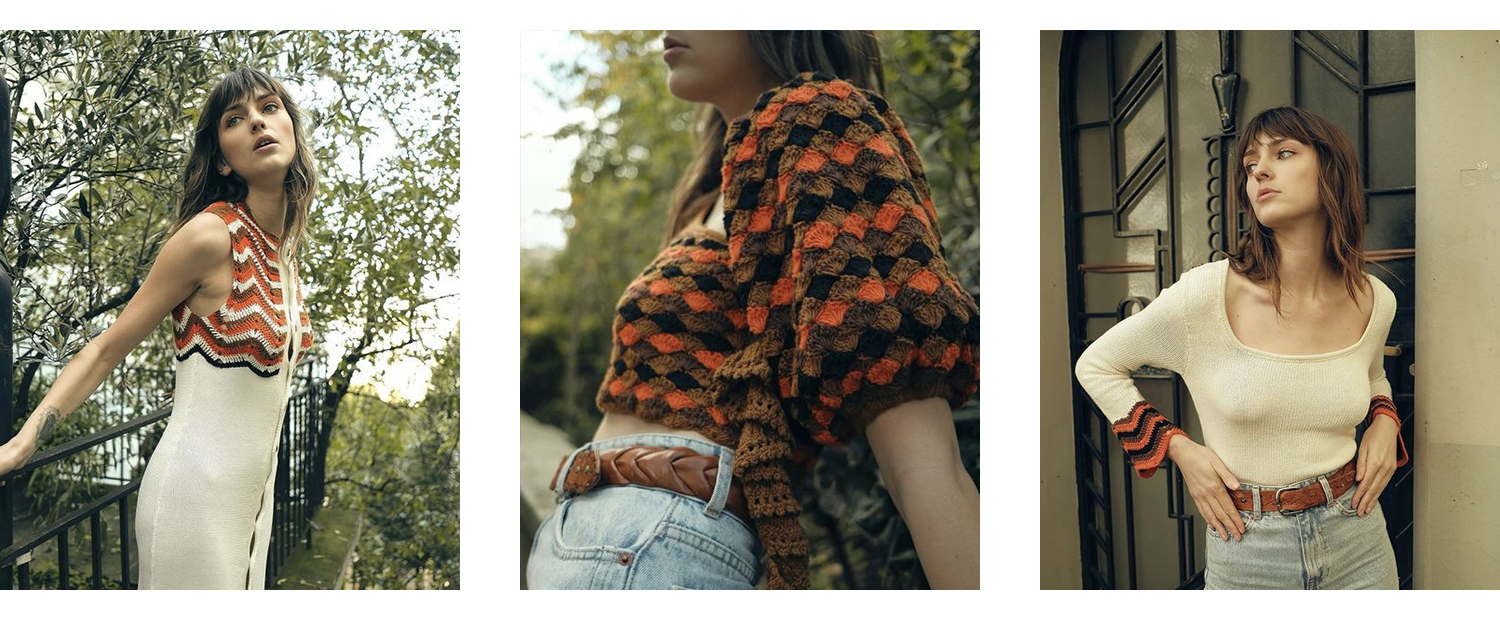
07 Respect of the environment
We consider that ecoresponsibility is essential in the fashion industry. It is better to act to preserve the environment than to greenwash customers (which means to make people believe that a company is doing more to protect the environment than it really is). We refuse to overproduce, we recycle every scrap of fabric and every unsold piece, we control our suppliers to make sure they don’t use polluting chemicals, we use natural and eco-friendly materials such as pima coton and alpaca, which are collected just a few kilometers away from our workshops, we bought second-hand furniture for our boutique in Paris, we reduce as much as we can our carbon footprint when we ship our collections, our knitting needles are made of wood and metal, we reduced our newsletters to avoid CO2 emissions when we send them… every action matters for the planet.
08 Transmission
The idea of transmission is at the core of STELLA PARDO. Firstly, we want to respect local craftsmanship, inherited from ancestral techniques such as Peruvian knitting, or Indian embroidery and tie and dye. Our purpose is to put forward these particular know-hows on the international scene. Then, it is important to encourage transmission for ecoresponsibility reasons. Our pieces are handmade to meet high quality expectations and are made to last. Therefore, our knits can be passed on from mother to daughter, sister to sister, grandmother to granddaughter. Lastly, it is important to share our values with as many people as possible.

